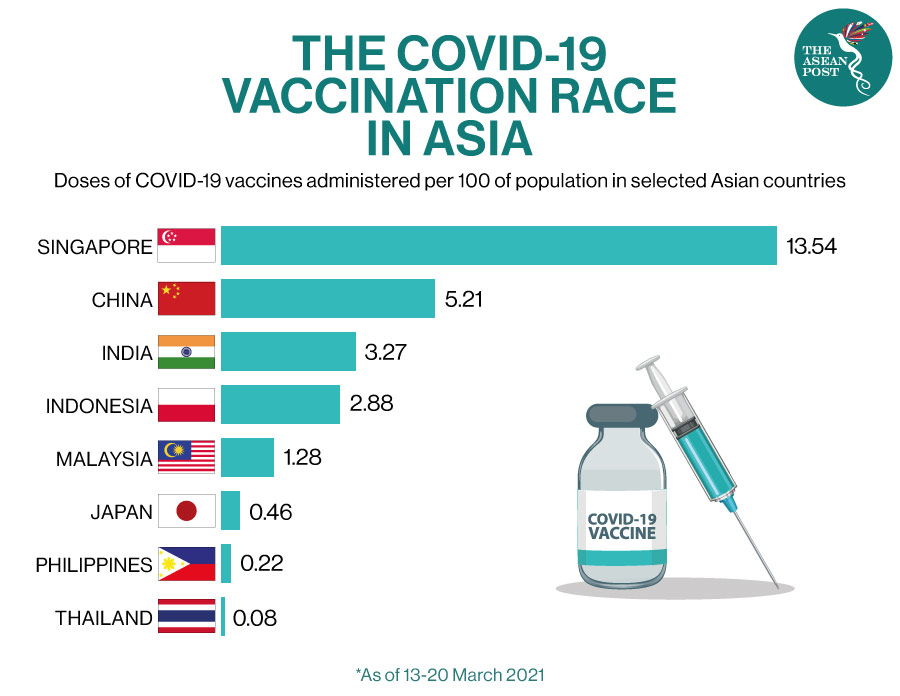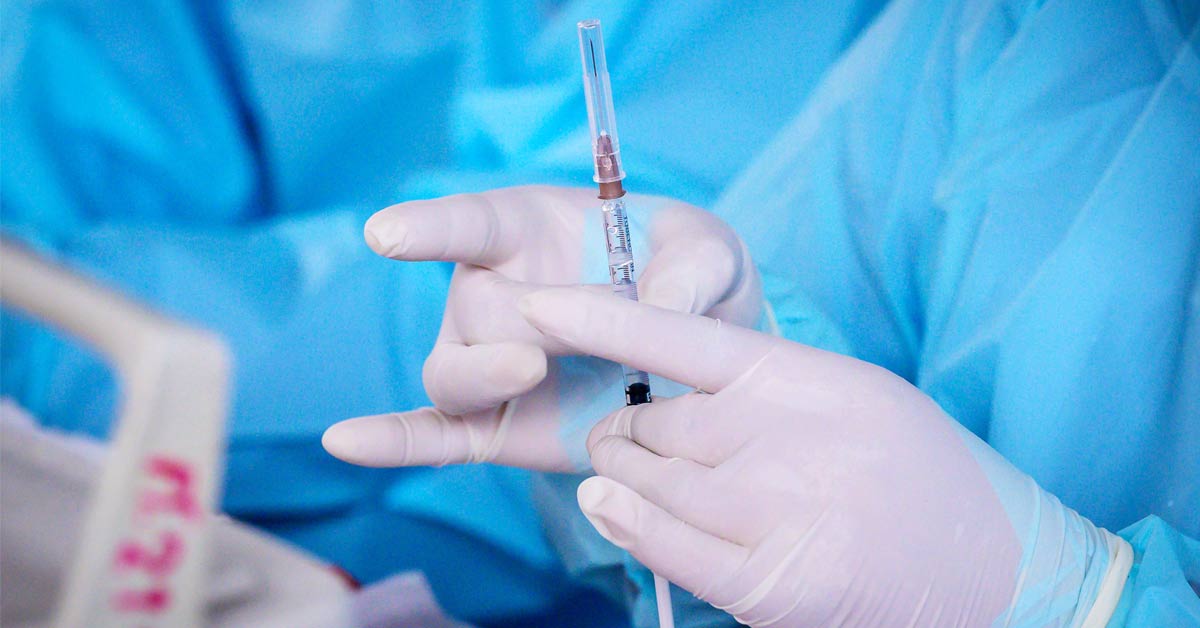COVID-19 vaccines protect people from the symptoms and more severe forms of the disease but are not designed to fully prevent them from being infected, experts said on Monday (12 April), following the case of a migrant worker who tested positive despite having both doses.
Inoculation is vital because although those who have had the jabs may still catch the virus, they are much less likely to get seriously ill than those who are unvaccinated.
The migrant worker, who was reported on Sunday to have tested positive, received his first dose on 25 January and his second on 15 February, Singapore’s Health Ministry said.
Finding someone who records a positive polymerase chain reaction (PCR) test result does not mean a failure of the vaccine, said Professor Ooi Eng Eong from the Duke-NUS (National University Singapore) Medical School, who is also developing a self-replicating mRNA vaccine with Arcturus Therapeutics.
The primary goal of vaccination is to prevent the COVID-19 disease, not infection, Ooi said. "Vaccinated individuals would have developed immune memory against the Sars-CoV-2 virus such that upon natural infection, the rapid immune response would prevent these individuals from becoming ill.”
"Although asymptomatically infected individuals can theoretically transmit Sars-CoV-2 to others, real-world data from vaccinated countries suggest that – without coughs and sneezes that expel the virus – such instances are relatively uncommon."
Very high efficacy rates also do not mean 100 percent protection, experts said.
Associate Professor Hsu Li Yang, an infectious diseases expert at the NUS Saw Swee Hock School of Public Health, stressed that the two mRNA vaccines currently approved in Singapore – the ones developed by Pfizer-BioNTech and Moderna – are about 94-95 percent effective against symptomatic disease, which means that some five in 100 people exposed to the virus may still become infected and have symptoms after vaccination.

Vaccines are not fool proof because the strength of the immune response varies across individuals, Hsu said. "For those whose immune systems are compromised, and even for those with otherwise normal immune systems, sometimes they are still not able to mount an adequate response even after exposure to the virus."
Despite these limitations, it still remains critical to be vaccinated quickly as few other measures are able to reduce virus transmission so effectively, Hsu added.
Associate Professor Alex Cook, Vice-Dean of Research at the NUS Saw Swee Hock School of Public Health, said: "Just like how an umbrella does not guarantee you won't get wet from the rain but makes you less likely to get wet and catch a cold, the vaccines do not provide perfect protection but drastically cut the risk of developing COVID-19 and being severely sick with it."
When asked if there will be no end in sight for curbs to prevent transmission since vaccinated individuals can be infected anyway, Cook said: "Once enough people have been vaccinated, the marginal benefit within a society to continue broad-based control policies such as mask wearing becomes much reduced."
Currently, those vaccinated continue to adhere to strict safe management practices. However, once most have been vaccinated, it may be time for these measures to be relaxed, Cook said.
"But I would expect that behind the scenes, measures such as contact tracing, testing symptomatic individuals, and the monitoring of the situation overseas would need to continue," he added.
This article was first featured on 12 April, 2021 in The Straits Times.
Related Articles:
